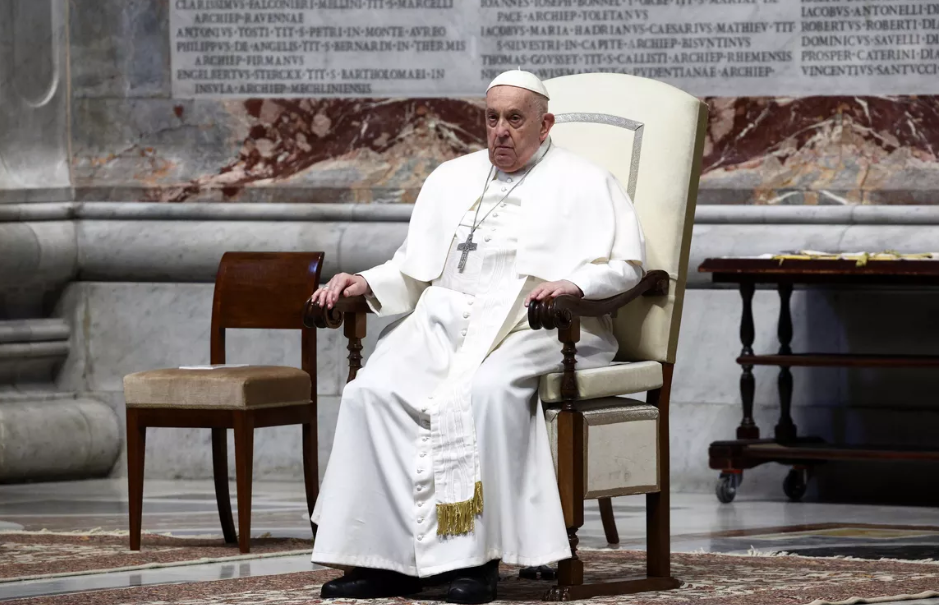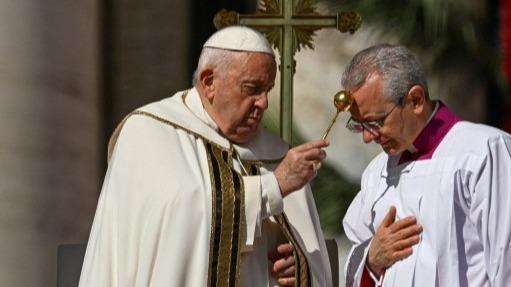SPIEGEL ONLINE: Only three out of more than 10,000 Catholic parishes in Germany are headed by women - a fourth will be added in December. A little bit, right?
Bärbel Bloching: That is far too little. In the future, we must try to get more women into positions like this. So far these have only been left to the clerics, ie to clerics such as pastors. It would be an important step, especially in this day and age. Thanks to the departure of Pope Francis, the shortage of personnel and the abuse scandal, thank God in our church, it is increasingly being considered today which steps would be best for the future.
SPIEGEL ONLINE: You are now working as a pastor. But you can not call yourself a pastor.
Bloching: I must not donate the sacraments, for example, in confessions or communions, otherwise I take over a lot: I am authorized to sign and responsible for the staff, I have the house right in the church and community centers and manage the budget. But - this is also in church law - in consultation with a senior pastor. He lives in a neighboring community, but we rarely see each other.
SPIEGEL ONLINE: So you do almost all the work and your male superior put the laurels for it?
Bloching: In my community, I have the responsibility and hold my head for everything. I can not get more money for that, although much more work has been added. I think this position is right and important and yet often sit between the chairs - with what I'm allowed to do and not allowed to do. However, I know that I can not say: Either I get all the skills of a pastor or I do not do the job. The deadlocked structures in the church are not easily broken.
SPIEGEL ONLINE: How is it going since you are at the top?
Bloching: We're killing a lot, the other day is an open-church cinema. We try crazy and go to the edges of the community. Sometimes we hear: What does that have to do with church?
SPIEGEL ONLINE: Why do so few women hold leadership positions in the Catholic Church?
Bloching: In the Catholic Church, on the one hand, this is a canonical and theological matter, and, on the other hand, of course, it is also a question of power. Of course, tackling this question also means loss of power for many clerics. Because as a non-cleric, I question her position. That's not my intention at all. I just want to show that I could do a lot just as well - in my own way.
SPIEGEL ONLINE: According to the Code of Canon Law, however, exceptions to the lack of priests are allowed.
Bloching: That's why I came into office: the last pastor changed the church, someone was looking for someone new. At that time it was up to us to merge a community with an already huge area with ours. Our parish council has resisted and decided: rather not to merge a pastor than to a large, unmanageable pastoral unit. Our bishop was also ready to try the model with me as a wife. But, as far as I know, paragraph 517.2, to which this model is called by canon law, has so far hardly been exhausted.
SPIEGEL ONLINE: Why is that?
Bloching: Above all, this has a theological background: there must be a continuous transfer of ministries, from Jesus to his disciples until today. However, I do not believe that Jesus only had men in his allegiance or wanted only men to lead churches. Probably women were not mentioned in the Bible because it was written by men, and it was simply a very patriarchal society then. At any rate, I can not understand why women today are excluded from such positions and structures.
SPIEGEL ONLINE: Do parishes need to get stuck in the crisis until a woman is allowed to take the lead?
Bloching: Yes, that's sad, but in our community it's unfortunately reality. The entire profession of pastoral clerks was then born out of necessity, there were just too few staff. Although in my case I have to say: I do not know how the bishop and the ordinariate would have decided if they had not already known me. After all, I've been in the community for more than 20 years. They knew that I would be accepted. Nevertheless, it has needed the need and not just my skills and competencies.
SPIEGEL ONLINE: You have studied theology, as well as your male colleagues in general. Is not it frustrating when certain positions are denied - just because you're a woman?
Bloching: I grew up in the system and came to terms with it by looking for my niches: I think I'm often closer to people than many pastors. I have a family, children, have done a lot of women and family work - and bring a very different life experience accordingly. But of course sometimes I find it sad when I accompany people for a long time and then they can not trust them.
SPIEGEL ONLINE: At the beginning of the year, Bishop Franz-Josef Bode of the German Bishops' Conference announced that the proportion of women on the leadership level of the bishoprics should rise to a third or more. Can this work at all?
Bloching: Actually, I think that the skills have to be decisive and not the fact that I'm a woman. Otherwise, I would argue as well as the clerics who exclude women because of their gender. But of course there must be a higher quota, which hopefully breaks up old ways of thinking. In addition to women, male laymen, ie non-clerics, should also be able to get into leadership positions. There is so much potential for people who have good abilities - but many vacancies remain unoccupied.









